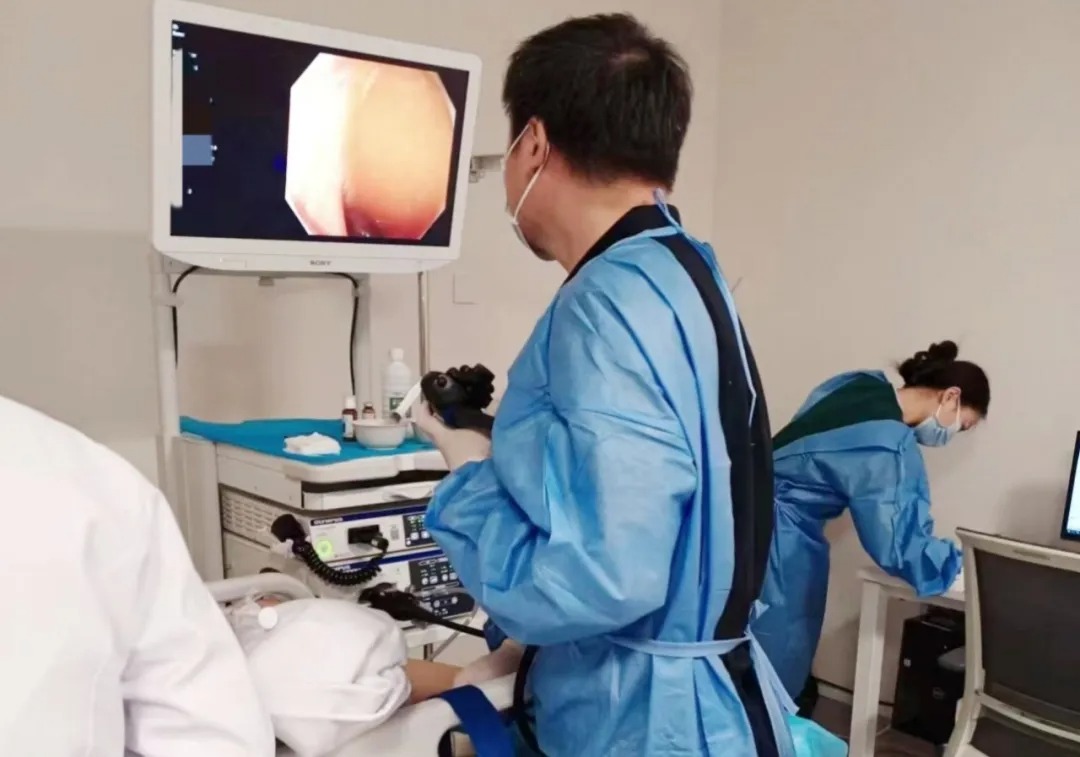Everyone can schedule a painless gastrointestinal endoscopy within a week. These groups of people are strongly advised to get checked!
With the increasing attention people are paying to their health, gastrointestinal endoscopy has become more common. For patients with digestive symptoms such as recurrent abdominal pain, reduced appetite, difficulty swallowing, changes in stool consistency, weight loss, etc., timely endoscopic examination is necessary. For those without symptoms, it is recommended to start screening for gastrointestinal tumors from the age of 40.
Why is gastrointestinal endoscopy necessary?
Nowadays, the incidence of gastrointestinal diseases is increasing every year, and gastrointestinal tumors severely impact human health. Through gastrointestinal endoscopy, early detection of common digestive tract tumors like esophageal cancer, gastric cancer, and colon cancer is possible. Experts advise that one-third of tumors can be prevented, and another third can be detected early through screening and cured. Therefore, early screening is crucial. Since the early symptoms of gastrointestinal tumors are often not obvious, by the time clear symptoms appear, it is usually in the middle or late stages. Early screening and prevention can significantly reduce the occurrence of gastrointestinal tumors, allowing for early detection, diagnosis, and treatment.
Why choose "painless" gastrointestinal endoscopy?
Many people are reluctant to undergo gastrointestinal endoscopy, and just hearing the word "colonoscopy" can make them nervous. A 10-minute examination feels like an eternity, as the procedure is not only uncomfortable but may also cause mucosal damage and bleeding. With increasing demands for comfort during digestive endoscopy, painless gastrointestinal endoscopy has become the choice for many who fear pain.

Symptoms that require gastrointestinal endoscopy:
- Upper abdominal pain or abdominal mass
- Unexplained loss of appetite
- Significant weight loss in a short period
- Difficulty swallowing or a feeling of obstruction while eating
- Vomiting blood or anemia
- Repeated bloating or indigestion
- Blood in stool, black stool, or sticky stool
- Anal pain or protruding masses
- Severe diarrhea, constipation, or other digestive issues
Who should consider gastrointestinal endoscopy?
- Individuals experiencing digestive discomfort: Such as unexplained acid reflux, heartburn, bloating, occult blood in stool, black stool, irregular bowel movements, or a sensation of choking while eating.
- Individuals with a family history of gastrointestinal tumors: It is recommended to have the first gastrointestinal endoscopy at the age of 30.
- Individuals in areas with a high incidence of tumors: For example, if many people in the same area suffer from esophageal cancer, stomach cancer, or colorectal cancer, it is important to stay vigilant and undergo regular check-ups.
- High-risk individuals aged 40 and above and individuals aged 50 and above: It is recommended to undergo regular gastrointestinal endoscopy.
Please note that painless gastrointestinal endoscopy requires pre-assessment and has certain requirements for cardiovascular and pulmonary function. Therefore, not everyone is suitable for painless gastrointestinal endoscopy.
Situations where painless gastrointestinal endoscopy is not suitable:
- Contraindications for gastrointestinal endoscopy are also contraindications for painless gastrointestinal endoscopy.
- Individuals allergic to anesthesia drugs used in painless endoscopy (mainly propofol).
- Patients with shock or severe heart conditions (including arrhythmia, untreated high blood pressure), brain, lung, liver, or kidney dysfunction.
- Respiratory infections or during an acute asthma attack.
- Severe snoring or extreme obesity.
- Gastric retention, or individuals who have consumed water within 2 hours or food within 6-8 hours prior to the examination.
- Acute upper gastrointestinal bleeding (therapeutic endoscopy can be performed under endotracheal intubation).
- Pregnant, breastfeeding women, or children under 3 years old should proceed with caution.
- Patients who are uncooperative or have mental disorders.
Precautions for Painless Gastrointestinal Endoscopy:
- Before the gastrointestinal examination and treatment, follow the doctor's instructions for related auxiliary tests and checks.
- The night before the examination, follow the doctor's advice to fast and prepare the bowel.
- A family member must accompany the patient, and remove any removable dentures before the examination.
- Inform the doctor of your medical history and any drug allergies.
- Pregnant women should proactively inform the doctor about their pregnancy during the visit.
- When undergoing colonoscopy, it is advisable to avoid the menstrual period.
- Rest for 30 minutes after the examination before leaving the hospital. For 24 hours after anesthesia, driving, cycling, operating machinery, or engaging in fine work is prohibited.
- If you experience any other discomfort, please seek medical attention promptly.
Beijing GoBroad Hospital Painless Gastrointestinal Endoscopy

Treatment Guide
- First visit (Monday/Friday), please make an appointment for "Endoscopy Center" and "Anesthesiology Department."
- First visit (Tuesday/Wednesday/Thursday), please make an appointment for "General Internal Medicine" and "Anesthesiology Department." ① Phone appointment: 400-696-2000 ② Mini-program appointment: Scan the code to enter the "GoBroad Health" mini-program ③ WeChat appointment: Scan the code to add the official customer service WeChat
















